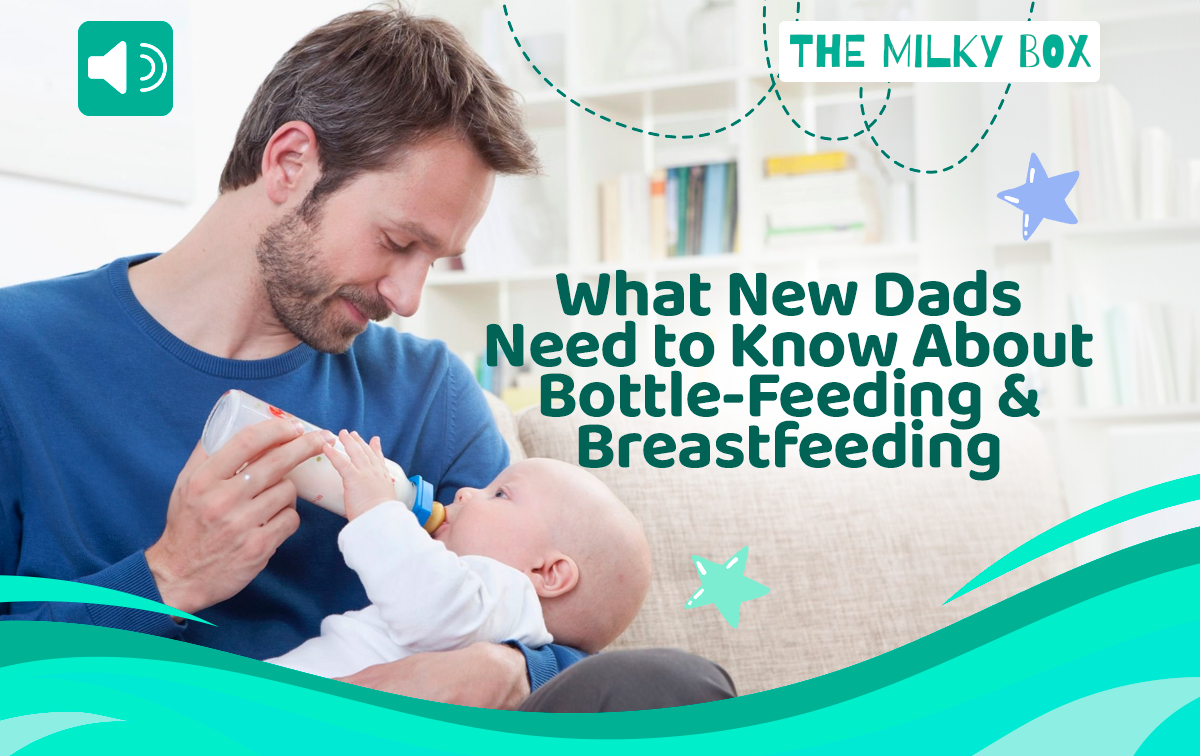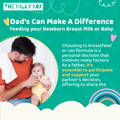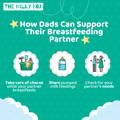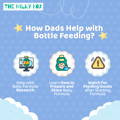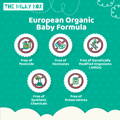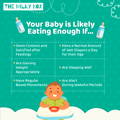1. Find a comfortable position: No feeding session should be an uncomfortable experience for either party. It’s good to be relaxed so you can enjoy your bonding time. For a deeper dive, check out this amazing article, where we describe multiple positions you can try.
2. Find the right bottle: Some parents swear by buying a variety of bottles featuring different nipple shapes to find the best fit for your baby. Opt for slow-flow nipples to mimic your baby's nursing experience.
3. Be safe: wash your hands before starting the process, and wash the bottle with soap and water after every feeding. This is essential to prevent harboring bacteria. You need to take them apart and wash the nipple, the collar, and the bottle itself separately. Some amazing brushes on the market can help you reach every nook and cranny.
4. Check the temperature: The milk shouldn’t be too hot, as this can cause deep burns on their delicate skin. Some babies even enjoy cold milk, it’s up to their preference. For more info, check our comprehensive guide on milk temperature.
5. Tune in with your baby: Look into their eyes, let them look at your face and explore it with their hands if they want. Check for hunger cues, and follow their lead. Some babies need a break in their feeding session, and they will lean away from the bottle to let you know. You can try offering more after a few minutes before ending the session. Remember to never put the baby down with the bottle in their mouth and walk away. This is extremely dangerous and can cause choking.
6. Burp them: Bottle feeding allows for more air intake than breastfeeding does, this is not necessarily bad for them if you burp them accordingly. There are many amazing resources online with pictures to learn a technique that works perfectly for your baby.
7. Leftovers: As a rule of thumb, you must discard the leftover milk in the bottle if they don’t finish it in two hours, according to the CDC. There are multiple techniques to handle milk storage, and the safest process is freezing it.
